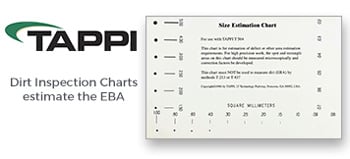Delignification Studies on Hot-Water Extracted Wood, 2010 TAPPI PEERS Conference

Please Note: This document will be available in PDF format in the "My Electronic Documents" link on the home page once your order has been completed. Please make sure you have the latest version of Acrobat Reader. Click on the Acrobat Reader icon to check for the latest version, it’s FREE. To print a hardcopy of a PDF file correctly you must have a postscript printer. If you are not sure if your printer is a postscript printer please refer to your owner’s manual.
There is a growing demand for increasing profitability of the pulp and paper industry by generating additional value-added products from wood. Consistent with these goals, a biorefinery concept based on hot-water extraction (HWE) of hardwoods has been suggested. Hot-water extract contains xylan chains, xylan-based oligosaccharides, and xylose, which, after hydrolysis, may be fermented to produce biofuels or bioplastics. Value-added chemicals such as acetic acid, formic acid, and furfural may be separated from hot-water extract. Hot-water-extracted woodchips used in kraft delignification demonstrated a significant advantage compared to unextracted woodchips: under the same conditions, extracted wood required less time than unextracted wood to produce pulps of similar kappa number. The relative ease of kraft pulping of hot-water-extracted wood may be attributed, in part, to higher porosity of the wood after HWE. These results on kraft pulping indicated that hot-water-extracted wood may be more efficiently delignified with other delignification agents including environmentally friendly alternatives. In this study, different sulfur-free agents were explored for their respective delignification efficiencies in an effort to devise effective alternative methods of lignin removal from hot-water-extracted wood. Peracetic acid was investigated as an attractive delignification agent with a potential to be produced on site from acetic acid, a projected biorefinery product. Oxygen was used in combination with acetone and ethanol, which are also designed biorefinery products.





